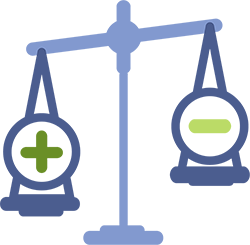
6 Reasons to Use WordPress for Your Website

There are many, many reasons why WordPress is the most popular website platform in the world– too many to fit in a single blog post. However, we’ve managed to narrow it down a bit and in the list below, we’re sharing with you the top six reasons why we think you should use WordPress for your website.
- Customizability: WordPress provides thousands of free and premium themes and plugins, allowing users to customize their websites as per their needs and preferences. You can choose from e-commerce, social networking, business, blogging, news, and many other types of themes. Moreover, the plugins can help extend your website’s functionality in virtually any way you can think of.
- SEO-friendly: WordPress is designed to be SEO-friendly out of the box. The code produced by WordPress is in line with the best practices of SEO. Moreover, there are numerous SEO plugins available that can give you further control over how your site interacts with search engines, improving your site’s visibility and ranking.
- Scalability: WordPress sites are highly scalable. This means they can grow as your business grows. Whether you want to add a blog, a shop, a news section, or a portfolio to your site, WordPress can handle it. Plus, it can handle a large volume of traffic and content without slowing down your site’s speed or performance.
WordPress is known for its strong security measures.
- Security: Although no platform is completely immune to security threats, WordPress is known for its strong security measures. It regularly updates its software to prevent attacks and there are numerous plugins available that help secure your website even further.
- Flexibility: WordPress is not just for blogging; it’s a robust system that can be used for all kinds of websites – from simple blogs to full-featured business websites, online stores, or even a network of websites. You can also integrate WordPress with a wide variety of services including social networks, mailing lists, and more.
- Mobile Responsiveness: WordPress themes are typically responsive, meaning they automatically adjust and look good on all devices, including desktops, laptops, tablets, and smartphones. This is crucial in a world where mobile browsing is overtaking desktop browsing. Furthermore, Google ranks mobile-friendly websites higher in search results.





